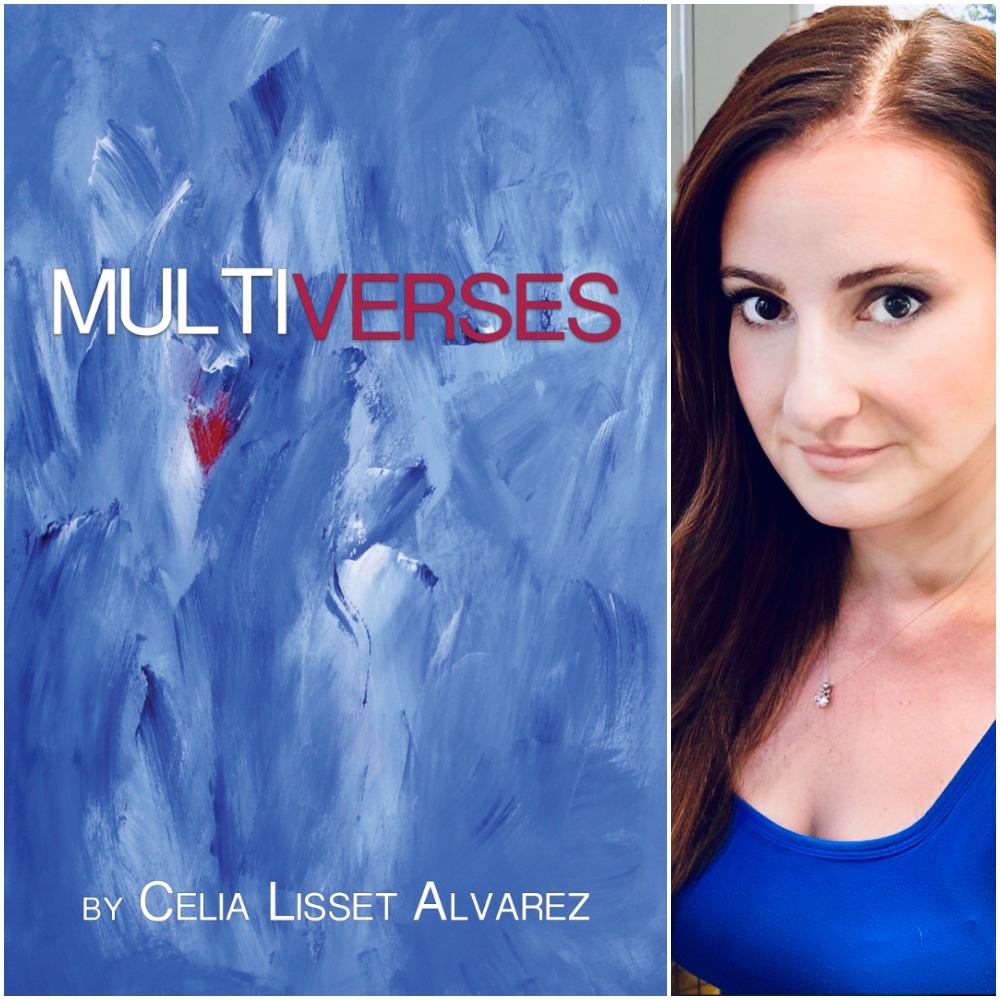Multiverses is a moving account of the tragic loss of a child. By drawing on the current physics theory of parallel universes, these poems explore the heartbreak, anger, regret and challenges of contemporary womanhood. Along the way, the poet deftly weaves in telling details that bring a multigenerational Miami Cuban family into focus. Multiverses is an unexpectedly moving family chronicle. Brava!
–Vasiliki Katsarou, author of Three Sea Stones and Memento Tsunami
Multiverses, Celia Lisset Alvarez’s debut collection, is a tour-de-force memoir-in-verse. In it, Alvarez tethers grief to hope, rendering multiple, braided stories of a family dealing with great loss. Grief takes center stage in the primary ‘universe’ of the poems, the ‘real world’ in which the death of the poet-speaker’s infant son, as well as of her father and beloved uncle, must be confronted. Yet hope inflects grief, continuously: in the speaker’s faith in her role as poet-archivist, “keeper” of the past in its many forms; in the poems’ witness to the love that sustains this family and spans generations, countries, and languages. Multiverses’ personal narrative is powerful and moving. Equally so is the poet’s skillful treatment of memory and time, which in the depths of grief might be our only source of salvation.
–Shara McCallum, author of No Ruined Stone and Madwoman
In her debut collection of poems, Multiverses, Celia Lissette Alvarez chronicles the quotidian struggles of a grieving mother in this remarkable meditation on mortality. Throughout the collection, Alvarez employs a mixture of startling metaphors and sometimes macabre humor to explore radical possibilities at crucial moments in her relationships with her parents, husband, children, and late uncle, Arturo, after whom she’d named two sons who died before their first birthday. Multiverses, untethered from chronological time, creates a portal for readers in which the recording of events becomes an event.
–Geoffrey Philp, author of Garvey’s Ghost.






Helen Huini –
Have you reached the end of the tether twice, tied a knot and held on for far too long? Was it better than sitting beneath the Damoclean sword, whose harm’s-way was held in place by a string of thread? Celia Lisset Alvarez has detailed her harrowing experience in a series of poetic lines.
The author adopted the first-person point of view in her narration which not only gives the reader a first-hand experience of the circumstances surrounding the death of her children but also endears her to the readers as well. Her choice of simple, yet figurative language is commendable because it ensured that the coherence of the poem was not interrupted all through the book.
Alvarez’s overt stylistic is borrowed from the theory of multiverses. She presents various scenarios of her son’s absence in her life and goes ahead to resurrect them in another worldline. This, I believe, is what I loved most about this book. Her impeccable ability to teleport me from the realistic state that she was into another better situation was equally cathartic.
The author’s undying spirit displayed strength and affection for one’s family. She foregrounded the sacrifices that mothers would make for their children and family alike. Reading through the lines, I couldn’t help but admire her infallibility and perfect desire to overcome one’s challenges.
The plot construction of this book has a steady development, with suspense in between the lines. Moreover, the inclusion of Spanish vocabulary and Biblical verses in the book has added to its aesthetic beauty and given it a sense of originality. I recommend it as a therapeutic read for mothers that seek a source of inspiration after losing their children. I equally recommend it to lovers of poetry_free verse poetry. On a scale of 1-5, it would be fair enough to award this book a perfect rating for its outstanding presentation.